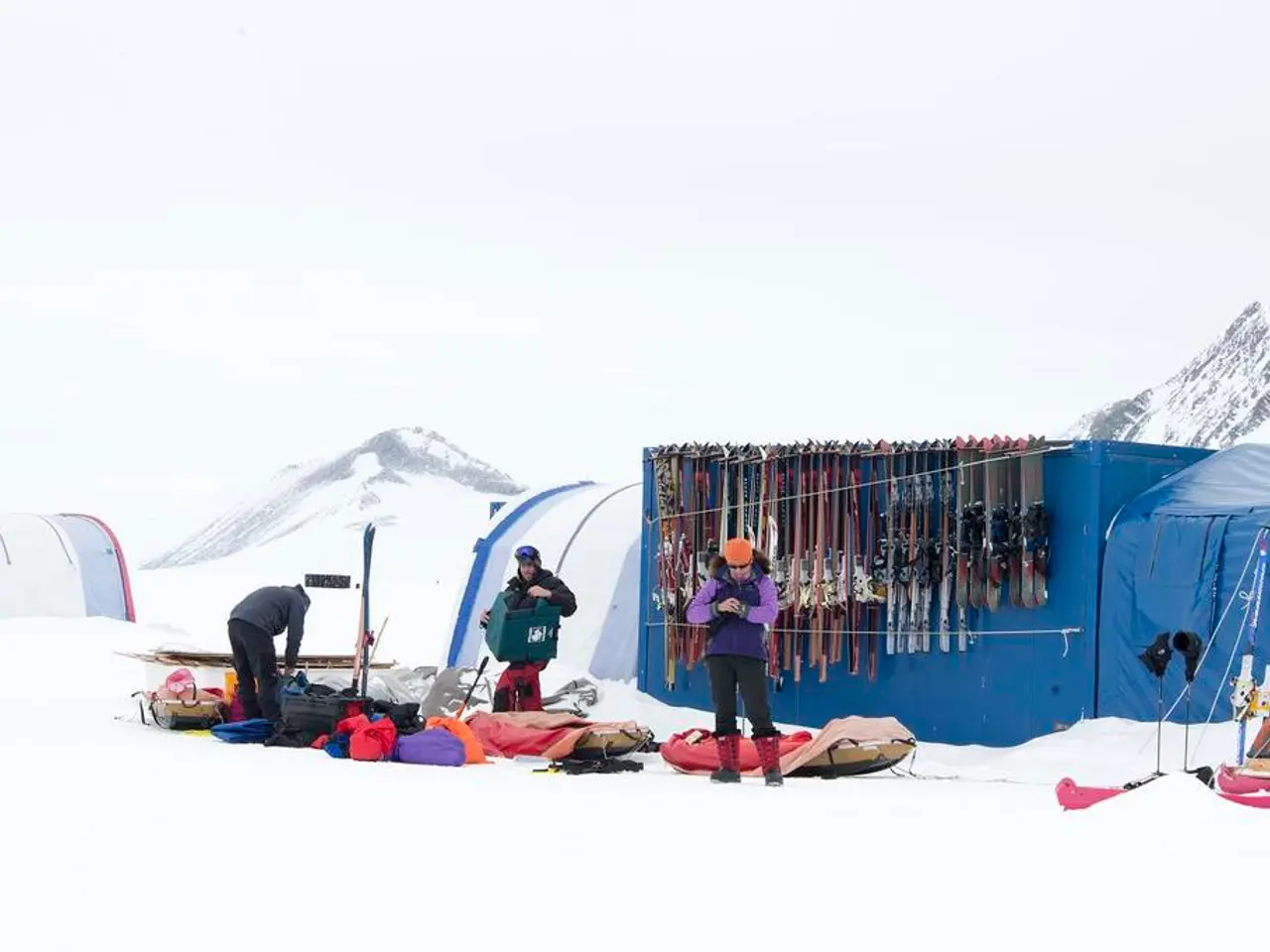Recapping the Winter Season 2020
In the heart of the Southern Alps, New Zealand's backcountry news a unique and eventful winter season. The season, which began in July, was marked by a strong start, with good snowfalls raising hopes for an epic winter.
The Mountain Safety Council (MSC) reported a record number of public observations, surpassing 200 for the winter season at the time of writing. These observations, including avalanche reports, snow conditions, and major rockfall events, can be submitted at avalanche.net.nz. This valuable data provided valuable learning opportunities, helping to better understand and manage the avalanche hazard.
Amidst the uncertainty about winter in the backcountry, a course aimed at managing avalanche hazard and ensuring safety proved to be a valuable resource. The Avalanche Risk Management Level 5 course, formerly known as Avalanche Stage 1, was attended by many in the ski patrolling, mountain guiding, heli-ski guiding, and conservation industries. Tom Harris, Alpine Advisor, was among those who completed the course.
The Tasman Glacier in Aoraki/Mt Cook National Park saw increased backcountry activity and skiing. However, the season was not without its challenges. August, for instance, was characterized by a lack of snowfall for the first half of the month. Yet, the weather was fantastic during the snow-scarce period in mid-August, offering a brief respite.
Despite the challenges, avalanche forecasting, ski areas, and guiding operations were able to proceed with some restrictions. The NZAA Avalanche Advisory provided the latest avalanche conditions, ensuring that those venturing into the backcountry could make informed decisions. Avalanche forecasting will continue for the Aoraki/Mt Cook area all year round.
The MSC website received positive feedback and was nominated for the Designer's Institute of NZ's Best Awards for site development. Additionally, the NZAA Instagram page gained over 45% more followers with its new approach of "forecaster lead content".
As the winter season progressed, it became clear that the avalanche season was not over in New Zealand. With over 40% of avalanche fatalities since 1998 occurring from November to April, it is crucial to remain vigilant.
Tom Harris, who completed the Avalanche Risk Management Level 5 course, described the winter as strange. Despite the challenges, he and many others in the backcountry community continued to learn, adapt, and ensure the safety of themselves and others. The winter of 2020-2021 in New Zealand's backcountry was a testament to the resilience and dedication of those who call it home.
Read also:
- United States tariffs pose a threat to India, necessitating the recruitment of adept negotiators or strategists, similar to those who had influenced Trump's decisions.
- Weekly happenings in the German Federal Parliament (Bundestag)
- Southwest region's most popular posts, accompanied by an inquiry:
- Discussion between Putin and Trump in Alaska could potentially overshadow Ukraine's concerns







